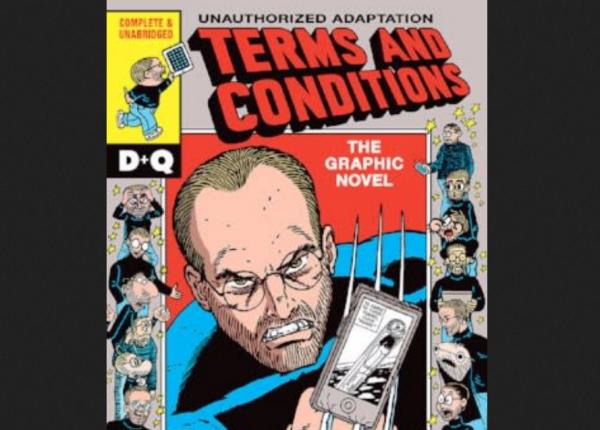Forget blockchain. THESE are smart contracts
The blockchain is one of the two or three foundations of the business model of the century. One of its applications should be “smart contracts”. Unless another idea gets the credit it deserves.
Smart Contracts are advertised as “The Blockchain Technology That Will Replace Lawyers”. They are, says Wikipedia “computer protocols intended to digitally … enforce the negotiation or performance of a contract”, in ways that are trackable, credible and irreversible, without third parties, that is without lawyers, and the associated expenses.
While this “Smart Contracts with blockchain” frenzy is taking place, somebody else is proposing to handle contracts in a totally different, but much more concrete, and easier to implement way.

I’m talking of the experts who are already producing, studying and promoting contracts formatted as normal mindmaps, illustrations or even comic strips, but as legally binding as the 50-pages-long, consistently unreadable texts we’ve all signed, one day or another. Read about Comic contracts and other ways to make the law understandable for more fascinating details.
The limits of comic book contracts, and why I like them a lot
Digital technologies are hugely powerful. They can, and should be used much better than they already are to solve real world problems. Fair laws and their fair enforceability are one of those problems, and some would argue a major one.
Easily understandable contracts will become even more important, as C. Doctorow notes at BoingBoing, with the coming General Data Protection Regulation (GDPR) that requires that “every piece of data gathered and shared be explicitly consented to by web users, with enough clarity”.
As powerful as they are, “Smart Contracts” and similar technologies can only be one of the tools to solve some parts of that problem. The same applies to “comic book contracts”, of course. I am not a lawyer and, as far as I can personally understand, certainly I cannot exclude that comic book contracts are a dead end. Or that, more likely, we need both blockchain-based contracts and their comic book description, because they address different parts of the original problem. But trying to check if some “old” tools are a better solution to a real problem, rather than just forcing on it the digital buzzword of the day, forgetting everything else… THAT is the way to go.
Who writes this, why, and how to help
I am Marco Fioretti, tech writer and aspiring polymath doing human-digital research and popularization.
I do it because YOUR civil rights and the quality of YOUR life depend every year more on how software is used AROUND you.
To this end, I have already shared more than a million words on this blog, without any paywall or user tracking, and am sharing the next million through a newsletter, also without any paywall.
The more direct support I get, the more I can continue to inform for free parents, teachers, decision makers, and everybody else who should know more stuff like this. You can support me with paid subscriptions to my newsletter, donations via PayPal (mfioretti@nexaima.net) or LiberaPay, or in any of the other ways listed here.THANKS for your support!